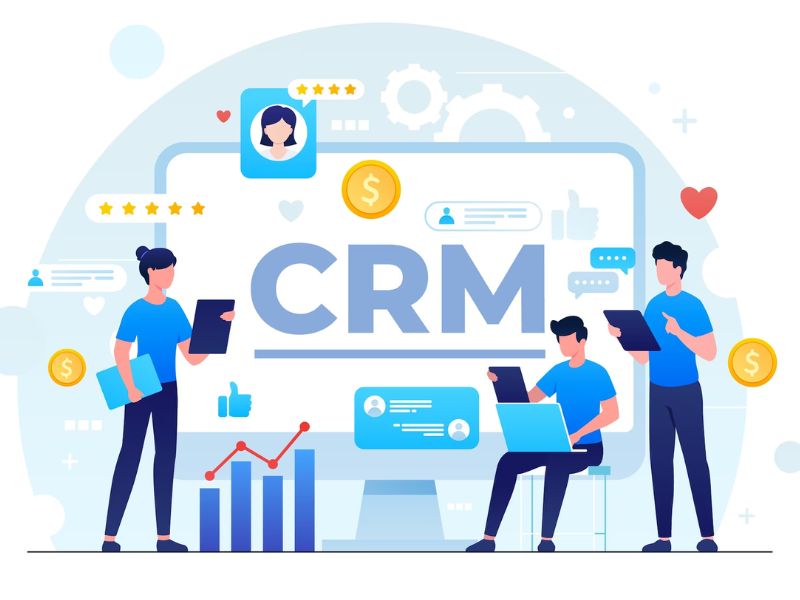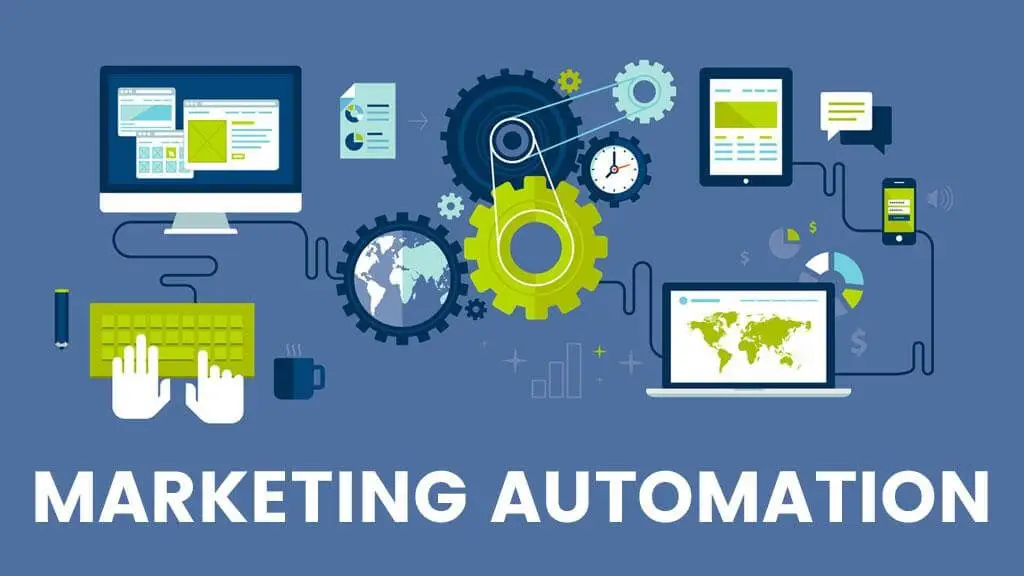CRM and marketing automation are two powerful and effective digital marketing strategies that can help you grow your business and achieve your goals. What are they, and what are the distinctions between them? Which one is better for your business needs and goals? In this piece, we’ll examine the distinctions between CRM and marketing automation, aiding you in determining their collaborative utilization.
 CRM is a key marketing strategy that can help you create lasting and profitable relationships with your customers. According to Salesforce, using CRM can boost your sales revenue by 29%, increase sales productivity by 34%, and raise customer satisfaction by 45%.
But it also has some downsides, like:
– High costs to start and keep up.
– Concerns about the quality and security of data.
– Challenges in getting people to use it and training them.
– Trouble measuring how much you’re gaining from it.
CRM is a key marketing strategy that can help you create lasting and profitable relationships with your customers. According to Salesforce, using CRM can boost your sales revenue by 29%, increase sales productivity by 34%, and raise customer satisfaction by 45%.
But it also has some downsides, like:
– High costs to start and keep up.
– Concerns about the quality and security of data.
– Challenges in getting people to use it and training them.
– Trouble measuring how much you’re gaining from it.
 It automates repetitive jobs saves time and effort. Providing helpful content improves customer satisfaction. Identifying potential leads is easier. Plus, it offers plenty of data for analysis.
But, there are some problems with it too:
– It’s hard to learn and complicated
– There are technical issues
– It lacks personal touch and creativity
– Sometimes, it might send too many messages and become spam.
It automates repetitive jobs saves time and effort. Providing helpful content improves customer satisfaction. Identifying potential leads is easier. Plus, it offers plenty of data for analysis.
But, there are some problems with it too:
– It’s hard to learn and complicated
– There are technical issues
– It lacks personal touch and creativity
– Sometimes, it might send too many messages and become spam.
What is CRM?
CRM means customer relationship management. It’s about managing and improving relationships with your customers and potential customers using software or systems that organize their information. With CRM, you can: – Understand your customers’ needs and preferences better. – Communicate with customers more effectively and personally. – Make customers happier and more loyal. – Keep your current customers and make them more valuable. – Sell more of your products or services to your customers. – Spend less on getting new customers and serving existing ones. – Work better together as a team. CRM is a key marketing strategy that can help you create lasting and profitable relationships with your customers. According to Salesforce, using CRM can boost your sales revenue by 29%, increase sales productivity by 34%, and raise customer satisfaction by 45%.
But it also has some downsides, like:
– High costs to start and keep up.
– Concerns about the quality and security of data.
– Challenges in getting people to use it and training them.
– Trouble measuring how much you’re gaining from it.
CRM is a key marketing strategy that can help you create lasting and profitable relationships with your customers. According to Salesforce, using CRM can boost your sales revenue by 29%, increase sales productivity by 34%, and raise customer satisfaction by 45%.
But it also has some downsides, like:
– High costs to start and keep up.
– Concerns about the quality and security of data.
– Challenges in getting people to use it and training them.
– Trouble measuring how much you’re gaining from it.
What is Marketing Automation?
Marketing automation means using software to do marketing tasks automatically. It helps in: – Getting more good leads – Organizing and aiming at your audience based on who they are and what they do – Sending personalized messages on different platforms – Guiding leads through buying process – Boosting sales and income – Checking and improving marketing results It automates repetitive jobs saves time and effort. Providing helpful content improves customer satisfaction. Identifying potential leads is easier. Plus, it offers plenty of data for analysis.
But, there are some problems with it too:
– It’s hard to learn and complicated
– There are technical issues
– It lacks personal touch and creativity
– Sometimes, it might send too many messages and become spam.
It automates repetitive jobs saves time and effort. Providing helpful content improves customer satisfaction. Identifying potential leads is easier. Plus, it offers plenty of data for analysis.
But, there are some problems with it too:
– It’s hard to learn and complicated
– There are technical issues
– It lacks personal touch and creativity
– Sometimes, it might send too many messages and become spam.





